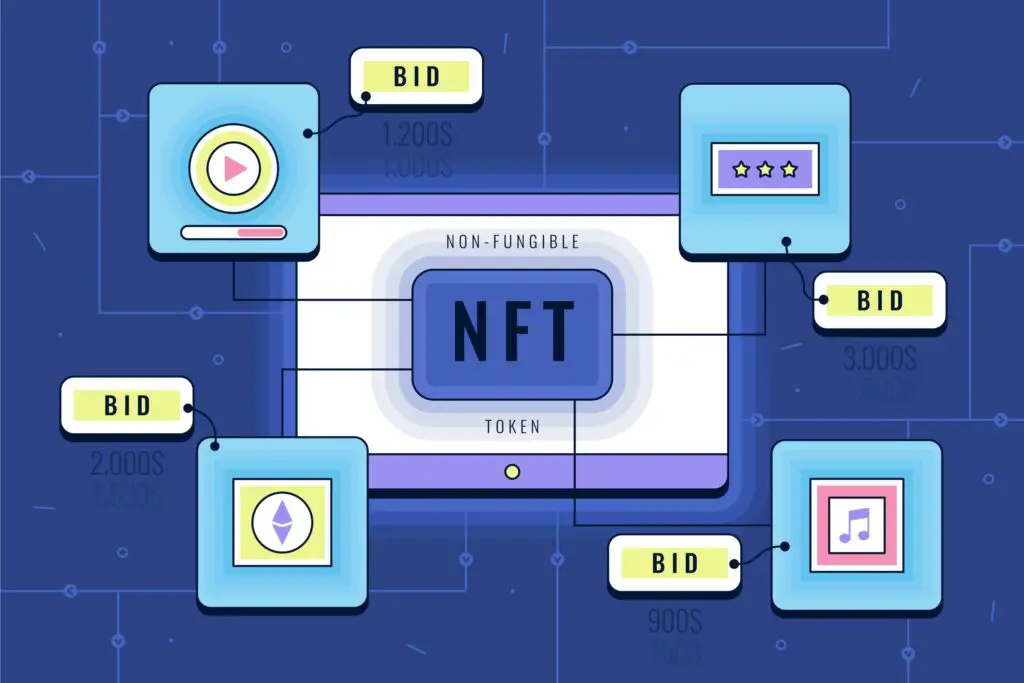
As non-fungible tokens swept the earth and hogged headlines and artists’ and collectors’ imaginations with them, too, from million-dollar digital works of art to memes being traded like precious collectibles were undeniably changing how we think of owning things in the digital age. It is also particularly often overlooked what do you own when you buy the best NFT.
If you’re searching for the best NFT to buy, it’s essential to understand what you’re purchasing. In this article, we’ll dive into what NFTs are, what you’re getting when you buy one, and how copyright laws play a role in this new digital landscape.
What Exactly Is an NFT?
A case of digital property, NFT is. On the blockchain, a decentralized ledger that permanently records transactions will be stored. What sets NFTs apart in terms of uniqueness, however, is their non-fungibility. Most other digital assets, most cryptocurrencies, for instance, are fungible, meaning each unit is identical and interchangeable; thus, every NFT is unique and, by nature, valuable two are alike.
NFTs can represent anything from art, music, video clips, and memes to even some physical things digitized. All of the above items, therefore, derive their value from the authenticity and proof of ownership—the two things verified on the blockchain.
What Do You Own When You Buy an NFT?
What is a stark reality, however, is otherwise. It is purchasing the digital certificate for a particular NFT rather than gaining copyright or any other rights on the actual work. Buying an NFT has one of the biggest fallacies associated with it: that buying the NFT grants you absolute ownership over the digital asset and hence ownership over all the rights connected with the original content.
Let’s break it down:
- Therefore, an NFT is just some unique code stored in the blockchain that would belong to you. It’s a very simple way of having a digital marker that indicates you own a particular token.
- You do not, however, own the underlying art, music, or video. In almost all situations, you’re not buying the content itself. You’re buying proof that you own a token related to that content.
Think of it like owning a rare baseball card. You own the physical card, but you don’t own the image of the player or the rights to reproduce it.
Do NFTs Involve Copyright?
Now, this gets a bit complicated. Copyright law specifies who can reproduce, distribute, or publicly exhibit a creative work. You generally do not receive those rights when you purchase the NFT, that is unless stated by the seller. So, with the NFT, you do not have any legal rights to copy and thus sell the artwork or music related to the NFT without first seeking permission from the original creator.
For instance, if you, after becoming aware of the best NFT to buy in digital art, are going to insert it into your virtual collection or resell the token, you cannot print on some goods or licenses without permission from the artist.
Common Misunderstandings
For such astronomical prices, one can see how a buyer would be confused as to what he is buying. If a meme or a tweet was sold for millions of dollars, many would believe the average person now owns the whole and all rights to the copyrighted material. However, ninety-nine percent of the time, he is just buying a token representing ownership of some digital item and not purchasing the item.
Search for the best NFT to buy in mind while being aware that you are rather acquiring the proof of digital ownership over a certain token than the exclusivity right on the work.
The Legal and Copyright Issues with NFTs
It makes copyright infringement, and therefore property rights, a question anew. To what happens when one mints an NFT of a work in which they neither own nor have rights? Already, it’s happened: several artists have found their creations sold as NFTs without permission.
Even though it is not copyright infringement per se—it’s more of linking the token to the work—it can still escalate into disputes. Some NFT marketplaces have policies on unauthorized listings, like removing infringing NFTs upon complaints, but with the growing popularity of NFTs, so do the disputes.
Smart Contracts and Future Potential
Another good potential area for NFTs is the exploitation of smart contracts in managing digital rights. A smart contract is a self-executing contract whose code is placed on the blockchain and deployed. This would therefore mean that the artist could enter into license agreements within the NFT such that upon sale, the buyer could license how to use the artwork in explicit ways, like exhibitions for commercial use. So far, only a few of them do, and their terms can be very different.
As the NFT space matures, we might see more sophisticated systems that help artists and buyers better understand and manage their rights.
Final Thoughts: What’s the Takeaway?
In a nutshell, what one pays for when buying an NFT is to acquire a digital marker, which is a unique ownership token for something digital but certainly not for the content or copyright attached to it. Of course, NFTs are still very young, so the distinction between owning a token and owning content is quite important, especially if one is looking for the best NFT to buy.
This is still pretty new and emerging tech, so I have much more to learn in terms of how they intersect with copyright and digital rights management. Exciting for creators and collectors, but important to understand what you are buying and what you are not in an NFT investment.
With so much promise, from the many listed above and beyond, NFTs may unlock ways forward in conceptualizing ownership and creativity in the digital realm with unique challenges that oblige us to even begin investigating.
Blockchain enthusiast and crypto expert covering Web3, DeFi, and NFTs.
